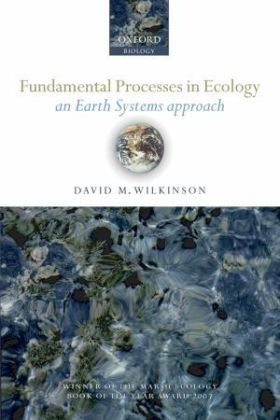Read more
Zusatztext Wilkinson does a fine job explaining fundamental ecological processes such as energy flow! multiple guilds! carbon sequestration! etc... Informationen zum Autor David M. Wilkinson is Reader in Environmental Science in the School of Biological and Earth Sciences at Liverpool John Moores University. He has wide interests within the environmental and biological sciences, where much of his research is on theoretical topics within evolutionary ecology, biogeography and Earth systems science. In addition he is involved in more empirical research on soil protozoa, environmental archaeology and the history of science. His teaching covers a diverse range of topics from the history of geology to forensic archaeology, but centres on various aspects of ecology. Klappentext This presents a new way to study ecosystems! resonant with current thinking in geobiology. It asks "what are the fundamental characteristics of living systems that might allow them to sustain life?" It shows how the idea of fundamental ecological processes can be developed at the systems level! specifically their involvement in control mechanisms. Zusammenfassung This presents a new way to study ecosystems, resonant with current thinking in geobiology. It asks "what are the fundamental characteristics of living systems that might allow them to sustain life?" It shows how the idea of fundamental ecological processes can be developed at the systems level, specifically their involvement in control mechanisms. Inhaltsverzeichnis Preface Part I. Introduction 1: Introducing the thought experiment Part II. The Fundamental processes 2: Energy Flow 3: Multiple guilds 4: Tradeoffs and biodiversity 5: Ecological hypercycles - covering a planet with life 6: Merging of organismal and ecological physiology 7: Photosynthesis 8: Carbon sequestration Part III. Emerging systems 9: Nutrient cycling as an emergent property 10: Historical contingency and the development of planetary ecosystems 11: From processes to systems Glossary References ...

